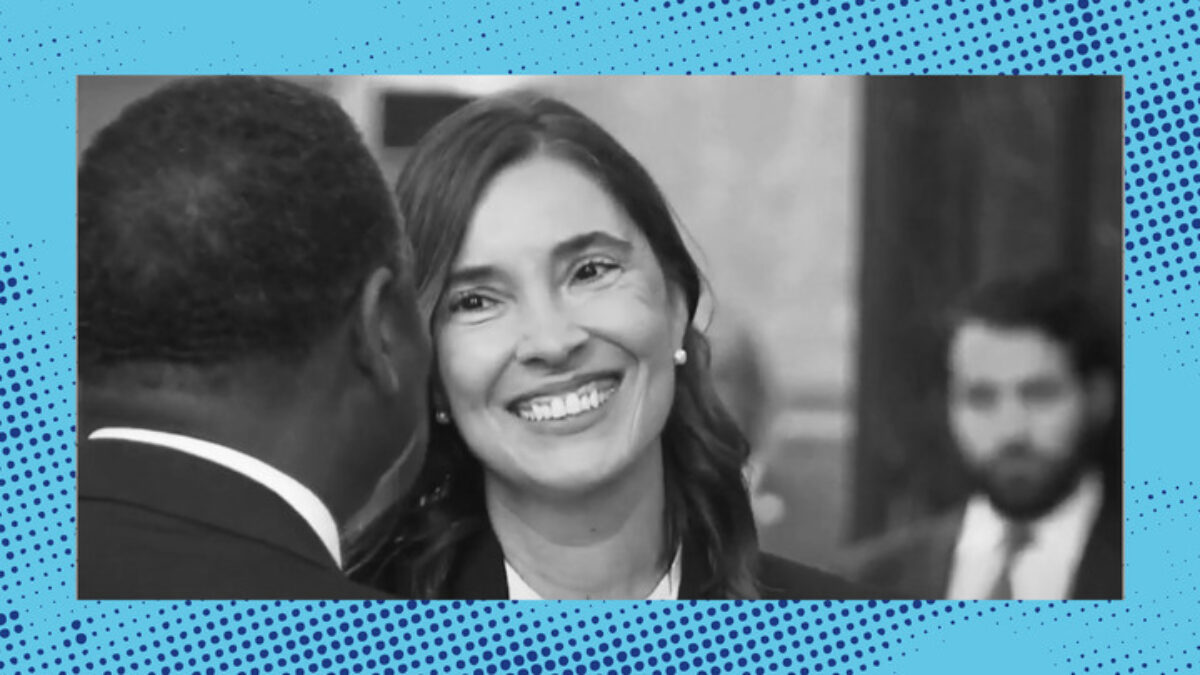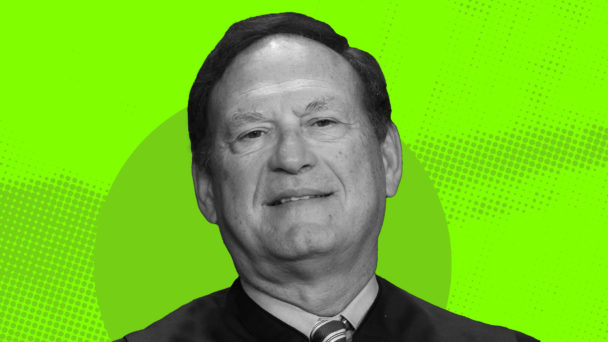Earlier this year, Anita Earls, the only Black woman on the North Carolina Supreme Court, sat for an interview with Law360’s Hannah Albarazi to discuss the grim lack of diversity in the state’s legal system. As is the case basically everywhere, white guys make up a disproportionate number of judges in North Carolina. But the trend extends well beyond mere judicial demographics: A recent analysis found that 70 percent of the lawyers who argue before the North Carolina Supreme Court are men, and 90 percent of them are white.
For the most part, judges shy away from public criticism of the legal system over which they preside, since doing so necessarily raises uncomfortable questions about their job performance. In a profession whose members pride themselves on the maintenance of collegiality and decorum, naming and shaming colleagues is also frowned upon, even when those colleagues have done something (or several things) to deserve it. As a result, when talking to journalists, judges tend to provide deeply milquetoast and boring answers to questions, to the extent they meaningfully answer questions at all.
This interview is different! In it, Earls frankly described her experiences being belittled by colleagues and interrupted by advocates arguing before her, which she blamed on a “culture” that privileges white male lawyers who look like the court’s white male justices. She criticized the chief justice, Republican Paul Newby, for scuttling mandatory implicit bias and racial equity training for state court judges, which she chalked up to “a general antipathy towards seeing that racial issues matter.” And she traced these decisions to the outlook of the Republican majority, whose members, she said, “see themselves as a conservative bloc” whose allegiance is “to their ideology, not the institution.”
Earls was careful to reiterate that she does not view the underrepresentation of women and lawyers of color before the Court as the product of “conscious, intentional, racial animus.” Rather, she said, “our court system, like any other court system, is made up of human beings, and I believe the research that shows that we all have implicit biases.”
Clip via YouTube / ABC 11
As a consequence of being the first judge in history to answer a reporter’s questions like a normal person and not a Republican politician mangling Martin Luther King Jr. quotes, Earls is now the subject of an investigation by the North Carolina Judicial Standards Commission, the state’s judicial disciplinary body. (As the journalist Billy Corriher explains at Slate, the commission is stacked with Republican appointees and is best understood as a tool of Newby and Republican lawmakers.) In a letter to Earls, the commissioners assert that because she possesses no “quantum of definitive proof” that her colleagues discriminate on the basis of race or sex, she neglected her duty to “promote public confidence in the integrity and impartiality of the judiciary.” Depending on the inquiry’s results, Earls faces sanctions up to and including removal from office—the office to which voters elected her by more than 15 points in 2018.
Anyone with a passing familiarity with the concept of unconscious bias will spot the impossibility of the commission’s demand here, which functionally requires Earls to present explicit and discrete proof of implicit and generalized bias. But as Corriher notes, Republicans in North Carolina have had it out for Earls, a civil rights lawyer who made a career out of suing state lawmakers to block partisan gerrymanders, ever since she took office in 2019. As my colleague Madiba Dennie wrote earlier this week for Balls & Strikes, the attacks on Earls are part of a national trend of Republican politicians trying to cling to power by simply deciding that Black people who win elected office are not allowed to keep it.
Even in Craven Political Hitjob-adjusted terms, this is one of the dumbest judicial “scandals” I’ve ever seen. Everything Earls says in this interview is an objective fact, or, at worst, a subjective description of her experiences with sexism and racism during her career as a civil rights litigator and elected official. (One might wonder whether, say, the decision to scuttle implicit bias training for judges in a state where over half the incarcerated population is Black might undermine “public confidence in the integrity and impartiality of the jury”; strangely, the Judicial Standards Commission has yet to open an investigation into the matter.) To the extent that Earls’s answers to Albarazi’s questions highlight the stubborn failures of North Carolina’s court system, the crisis worth investigating here is the persistence of those failures and leadership’s unapologetic disinterest in solving them, not Paul Newby’s feelings getting hurt because he “doesn’t have a racist bone in his body” or whatever.
The backlash to Earls tracks the prevailing conservative response to any suggestion that the American legal system has not magically rid itself of bigotry once and for all: by melting down in spectacular fashion. Since President Joe Biden’s administration promised to diversify the lily-white federal judiciary, a menagerie of right-wing talking heads have excoriated him for “prizing skin color over actual ability,” and “trying to replace excellence and merit with diversity,” and saddling the Supreme Court with a “lesser” Black woman as its newest justice. This is not a new phenomenon: More than a decade after Justice Sonia Sotomayor’s confirmation, there are still National Review bloggers who will start foaming at the mouth if anyone utters the words “wise Latina” within a ten-mile radius. From their relentless criticism of affirmative action to their decades-long war on the protections of the Voting Rights Act, a core tenet of Federalist Society jurisprudence is that the most dangerous form of racism in America today is doing anything that treats prejudice as (1) real and (2) something policymakers in a multiracial democracy can and should do something about.
Maybe the most disappointing takeaway from this fiasco—other than, again, the very real possibility of success for a cynical bid to railroad a Black woman who had the gall to state opinions in public—is the very real possibility that it will deter other judges, in North Carolina and elsewhere, from speaking out in the future. The legal system in this country depends for its legitimacy on the notion that it metes out justice fairly and impartially to everyone who comes before it. It has never come close to fulfilling this lofty promise, but judges who aspire to do so—which I am pretty sure should be all of them, but I digress—have to be able to be candid about the failures they encounter at work every day. The public is better served by more Anita Earlses in positions of power, not fewer of them.
If a sitting state supreme court justice can’t talk about their personal experiences of bigotry without facing a bullshit ethics complaint and removal from office, no one is safe to do so. This result, of course, is exactly what Earls’s detractors want.




